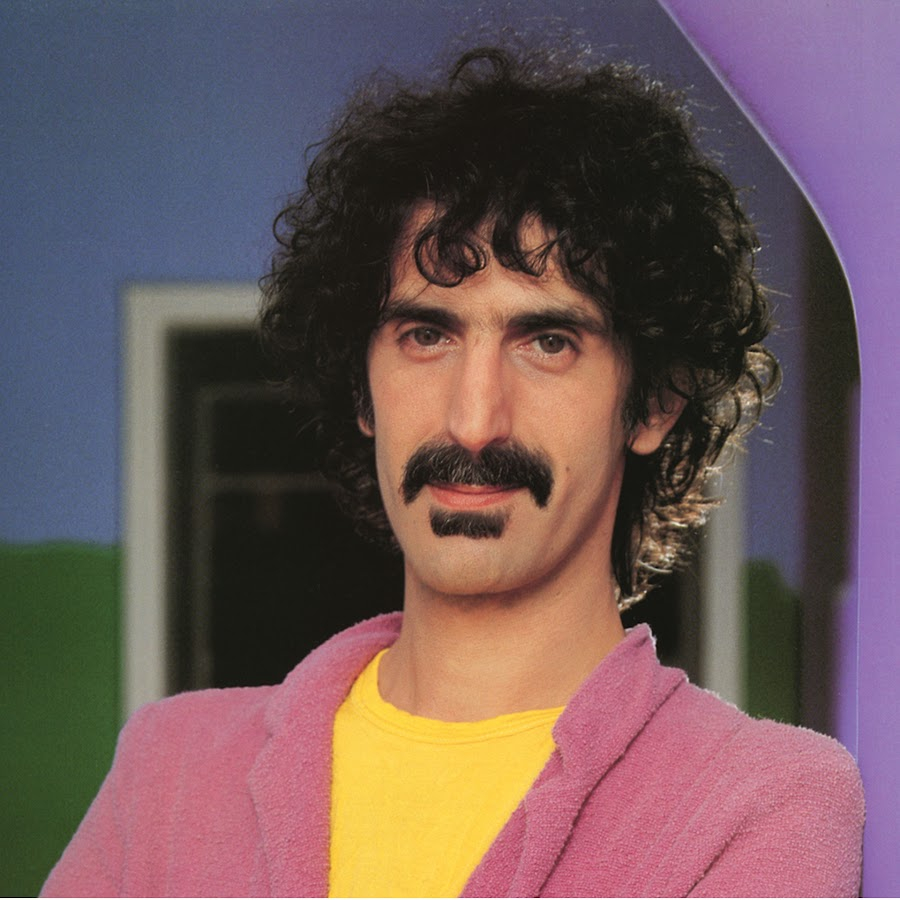ANNIVERSARY OF ZAPPA
Today, the anniversary of one of the most remarkable figures in 20th-century music, composer Frank Zappa.
It is impossible to define the field in which he worked: rock, pop, jazz, electronic music, or even contemporary music...
Equally impossible to restrict his action to the narrow field of entertainment, where the implacable logic of the market would want to reduce music.
Creating a personal universe, rich in terms of language elements, breaking down the boundaries between genres and styles, Zappa managed to achieve the coherence of his approach, which he called "conceptual continuity."
Zappa liked to define himself as an "American composer," and he is both outside and inside this definition.
First, through his origins, which offer a typical example of the melting pot of the Americas: Italian and Lebanese on his father's side, French and Italian on his mother's side. Then, through the realization of the self-made man concept, having educated himself mainly by frequenting public libraries.
Immersing himself in the urban music of his time, discovering blues and jazz and participating in the invention of rock, Zappa also quickly became interested in so-called contemporary music.
As a gift for his sixteenth birthday, he asked his parents for a phone call to Edgard Varèse, a French composer exiled in the United States, whose "Ionisation," which had so impressed the young Frank, was the first work of Western music to use only percussion instruments (as well as the piano treated as a percussion instrument and even sirens).
While developing his musical language, Zappa was highly aware of the social context in which music exists, and how it could be both a reflection and a fundamental challenge to that context.
The extraordinary freedom of tone and raging irreverence led Zappa to a few encounters with the law, but also offered a free breathing space in a world suffocated by fears and conventions. Zappa mocked the Church of Scientology, consumerism, televangelists, mortal institutions, censorship, and any form of political correctness. This dimension attracted a certain part of his adolescent audience, originally in rebellion, but Zappa was much more than a sterile protester. He also successfully engaged diverse audiences, from rock and jazz-rock enthusiasts to contemporary music fans and modern literature readers.
In fact, in words and (especially) through his work, Zappa declared outdated a whole part of the music from the past, introducing very organically asymmetric measures and polyrhythms, the breath of improvisation, the dynamics brought by electricity, and the undeniable contribution of various urban musics by abolishing the hierarchy between "high" and "low" music.
Zappa knew how to exploit better than anyone else an advantage that young America had over old Europe – a space for novelty that was not cluttered with family furniture or obligatory homages to the giants of the past, an absolute freedom, not phagocytized by money (see the wink in the title of one of his early records, "We're Only in It for the Money").
Moreover, aware of the secrets of the music business, Zappa masterfully avoided the strings of the industry. He behaved like a skilled businessman, making his companies commercially viable and ensuring his true creative freedom. He even became a business owner – his music group – where delirium and tyranny coexisted. But it was a collective delirium, more lucid and just than the unthought reasonable, and a tyranny accepted by all that aimed at overcoming limits. A whole pleiad of great American musicians crossed his path, striving to give their best, both in terms of technicality and creativity. It's the same phenomenon observed with Miles Davis.
The consistency of his approach, the constant desire for experimentation, and the artistic excellence earned Zappa a place in European "classical" ensembles that once championed modern and contemporary repertoire. For instance, in 1980, Pierre Boulez conducted a unique recording, a grand orchestral fresco titled "Boulez Conducts Zappa: A Perfect Stranger." The work begins with a doorbell: a vacuum cleaner salesman visits a housewife under fifty...
In Eastern countries aspiring for greater freedom, Zappa became a key reference, giving form to the naive dreams that moved these countries from the Soviet block into the welcoming arms of smiling capitalism, a flower that was perhaps more poisonous and constricting than the explicitly liberticidal Soviet yoke... Prophetic, Zappa warned his audience of this second danger, just as Solzhenitsyn did in his time.
Zappa's statues have been erected in the Czech Republic, Germany, and Lithuania (where, oh irony of history, it was a sculptor famous for his official tributes to Lenin who designed it).
It is hard to overestimate the contribution of this great creator, whose works such as (just to name a few) "The Black Page," "The Yellow Shark," "Uncle Meat," or around sixty albums offer the ever-inspiring summits of 20th-century music.


